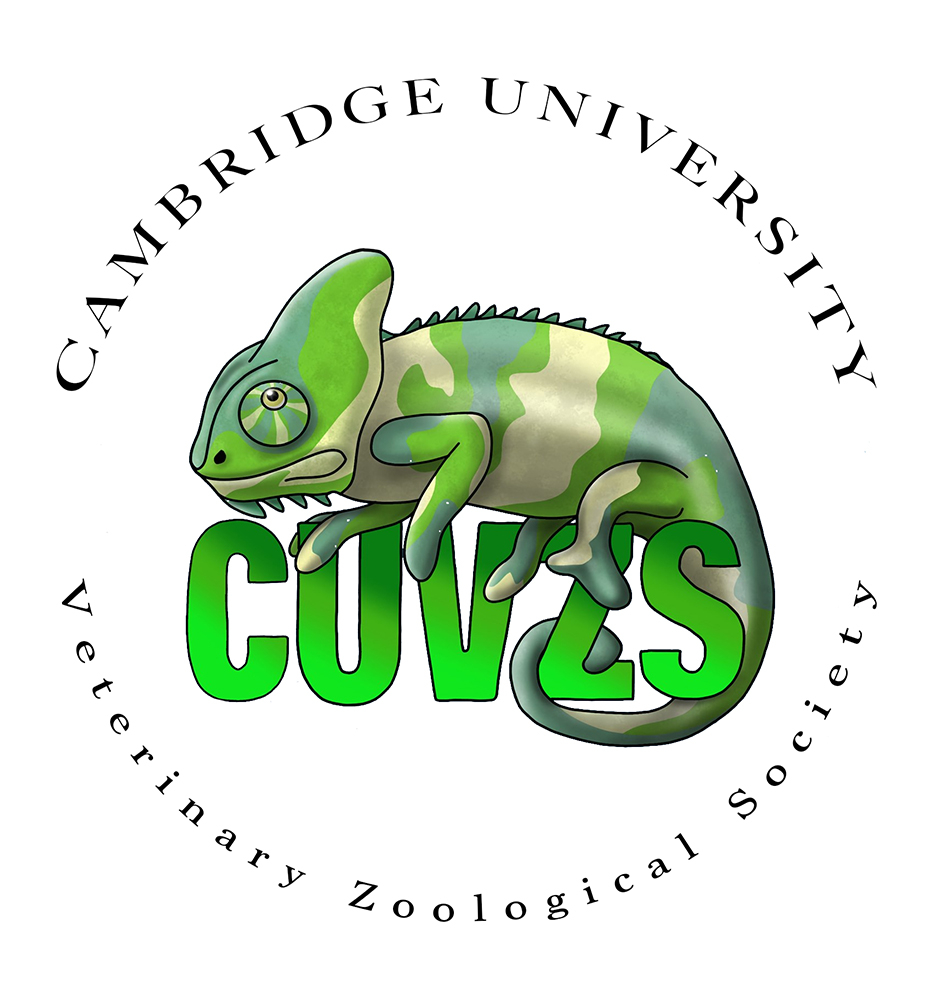
AWSELFA stepped up to support the next generation of veterinary professionals adding it’s sponsorship to the Southern Veterinary Symposium 2024, hosted by Cambridge University Veterinary and Zoological Society.
The weekend, held last month in Cambridge, combined interesting talks, practical sessions and thought-provoking discussions with the opportunity to meet and enjoy “good company’ in a more relaxed environment – the weekend starting with the CUVZS ‘exotics-themed’ pub quiz at Pembroke College where teams from different veterinary schools competed for bragging rights!
EXOTIC ETHICS
David Williams started the weekend of discussion and learning by posing the question: ‘Is keeping exotic pets ethical?”. Benjamin Kennedy, in his talk on invertebrate medicine, looked at clinical examination, anaesthesia, diagnostic tools and more. He went on to set out the difficulty of treating an invertebrate patient when the pharmacokinetics of all available drugs have never been studied in that species.
After a short break, Sonya Miles made sure everyone in the audience will never leave a rabbit consult without palpating the patient’s ear bases, by taking us through her approach to rabbit ear disease.
Becki Lawson introduced delegates to the possibility of a career outside of clinical practice, with her lecture on her experience in wildlife disease surveillance in Great Britain. She emphasised the importance of citizen science in the research of the threat of diseases to British wildlife and presented possible links between emerging infectious diseases and anthropogenic activity.
Fabian Rivers’ explored the frustrations that can be at the heart of a reptile consultation and emphasised that taking a complete, thorough history is, as always, imperative!
Saturday afternoon offered delegates the option of taking part in one of two practical sessions: Sonya Miles led a rabbit surgical and clinical skills practical. Each student could practice intubating and neutering on their cadaver, with guidance from Sonya and resources from Just Exotics. And Benjamin Kennedy ran an invertebrate practical, which covered aspects of snail shell and butterfly wing repair, spider autotomy and live locust handling and examination.
Saturday evening was spent at formal dinner with great company at St Catharine’s College. After dinner, Professor Matt Mason and his student Isaac Miller shared their research into the middle ear structure of a menagerie of species: from toads to golden moles to a comparison of marsupial middle ears against their mammalian ‘counterparts'.
On Sunday morning Cambridge University’s Department of Zoology’s work was in the spotlight when Dr James Herbert-Read set out his exploration of predatory-prey interactions, perception and social behaviour in marine animals; while Dr Eleanor Bladon revealed her team’s evidence to try and answer the question: Can recent evolutionary history promote resilience to environmental change?
Chiara Adami’s presentation covered the different challenges veterinarians can expect to face during anaesthesia of non-conventional animal species – specifically toads, crocodilians, and tinamous.
HOW DO YOU PERFORM A CLINICAL EXAM ON A HEDGEHOG?
Shepreth Hedgehog Hospital’s long-time volunteer Judith Large lifted the curtain on the charity’s work in the treatment and rehabilitation of wild hedgehogs. She taught delegates how best to perform a clinical exam on a hedgehog – despite their spines and strong panniculus muscles.
Sarah Pellett lectured on: “How to get through a fish consult”, from an initial consultation to common clinical presentations. It was noted that there are now many more veterinary students equipped with confidence and knowledge in fish medicine then there was before Sunday lunch.
The final talk of the weekend was from Lucia Gomez, Great Western Exotics, which covered the different diagnostic imaging modalities available in exotic animal medicine.
Sunday concluded with the option of taking part on one of three practicals:
Benjamin Kennedy led an avian clinical skills session, teaching coelioscopy (scopes kindly lent to us by IMV imaging), intubation, crop-feeding, and i/m and s/c injections;
experts from Reptiles Etc covered husbandry basics and handling techniques of snakes, lizards, frogs, toads and tortoises. Students had the opportunity to practise handling both models and live animals;
while John & Margaret Cooper asked “Is this eagle legal?” in their veterinary forensics session, which involved small groups presenting whether they believed their specimens were legally obtained, in the style of an expert witness called to court.
“To everyone involved in SVZS 2024 – the students, lecturers, practical runners, organisers, patrons and sponsors CUVZS – we hope you thoroughly enjoyed the weekend (and learnt something too),” said Mariella Hartley, CUVZS.